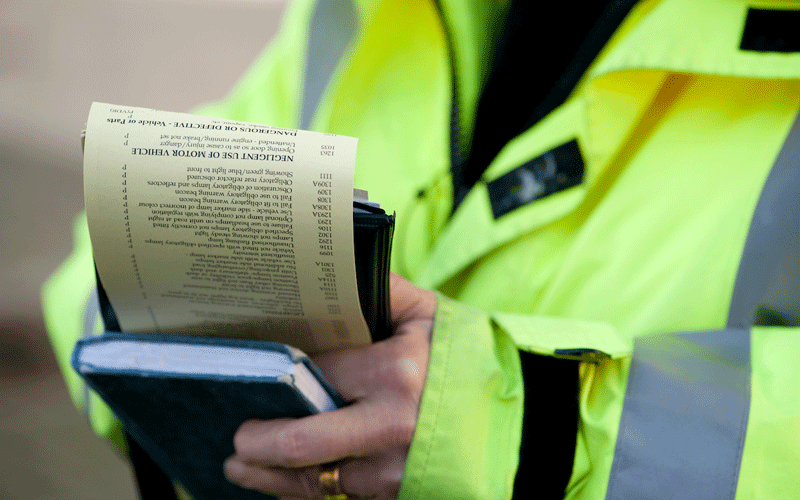It is widely acknowledged that public perceptions towards parking management are generally negative. However, the factors that drive these perceptions are complex. Ultimately, motorists want the act of parking to be as seamless as possible. They want to be able to find a space at an appropriate distance from the place they are trying to get to at a price they are willing to pay.
In many cases, the public understand the need for parking management as the high demand for limited kerbside and off-street parking space is visible to them; particularly in urban environments such as London. While not everyone will appreciate the full range of benefits that parking management delivers to society, they will appreciate how the service impacts on their own personal activity and that without it, their personal utility would be compromised.
That said, the benefits and the need to introduce certain parking controls are generally more readily perceived by local authorities than they are by the public given the holistic oversight that local authorities have and the data they have access to. In their new Kerbside Strategy, Southwark Council (2017) state: “Over the last two years we have introduced Controlled Parking Zones into two new areas. In both cases there were previous consultations that led to no parking controls being implemented even though parking pressure at that time was high and demand was likely to increase further”.

Factors driving negative perceptions
While road users accept and understand the need for and role of parking management in the general sense, evidence suggests that they harbour certain grievances with the system. These grievances are discussed in turn and many are interlinked.
The collection and use of revenue
The collection and subsequent use of revenue is a particularly emotive subject in the case of parking. While a limited number of people wrongly perceive that local authorities ‘profit’ from parking services, there is nonetheless a more widespread perception that revenue generation is the priority for local authorities when delivering parking services. This perception relates not only to the way in which the system is enforced but also the way it is set up.
The perception that parking management is a revenue/profit-focussed activity is unlikely to be helped where private sector contractors are brought in to deliver CPE services on behalf of local authorities. The public may be suspicious of the motives had by contractors for issuing PCNs and whether they are working to quotas or targets for enforcement as part of their contracts with local authorities, while others may not be aware that CPE is a public-sector responsibility at all.
Fairness
There is a perception that aspects of the system are set up to catch people out as a motive for generating revenue. For example, the freight industry queries the appropriateness of using time restrictions to govern loading and unloading activity. It is argued that the industry has the built-in efficiency to ensure that vehicles are not parked for longer than is necessary to carry out operations and that the issuance of a PCN is not effective in driving operational efficiency as designed, but rather adds to the cost of doing business in London.
Changing perceptions
Importantly, redressing negative perceptions does not necessarily mean that they will be turned positive. As is outlined above, the very nature in which parking management works as a public service – particularly the way it delivers external benefits rather than private benefits – ensures that migrating the fulcrum of popular perception from negative to positive is a significant challenge; although not impossible.
What is clear from the evidence gathered on perceptions is that there are effectively two separate lines of action:
-
Ensuring service delivery is fair, consistent and transparent and that regulations and the need for controls are properly understood.
-
Better communicating the range of societal benefits of parking management to users/the wider public.
The Positive Parking Agenda and the role of the media
The ethos of the need to change perceptions on parking management is encapsulated within the BPA’s Positive Parking Agenda (PPA) – as supported by London Councils – which seeks to achieve the following objectives:
-
To improve the public’s understanding and image of parking management by helping local authorities to work together to: set and raise standards; improve communication; encourage innovation; and promote transparency in the delivery of parking management.
-
To deliver fair, efficient and effective parking management for everyone in society, according to a set of defined key principles.
-
To achieve a step change in public attitudes about parking, shifting the focus of public interest and media coverage to the positive benefits of effective parking management.
The final objective makes reference to media coverage and the desire to shift it towards the benefits of parking management and away from some of the negative stories which can discredit parking services.
Many London borough officers regard aspects of media coverage around parking to present a challenge to their profession; however, it is important to recognise the vital role played by the media in sounding out and exposing bad practice in parking management. This is, of course, very different to headlines and stories that may be used opportunistically to the detriment of those working hard to deliver parking services which seek to play to popular perception to court readership.

